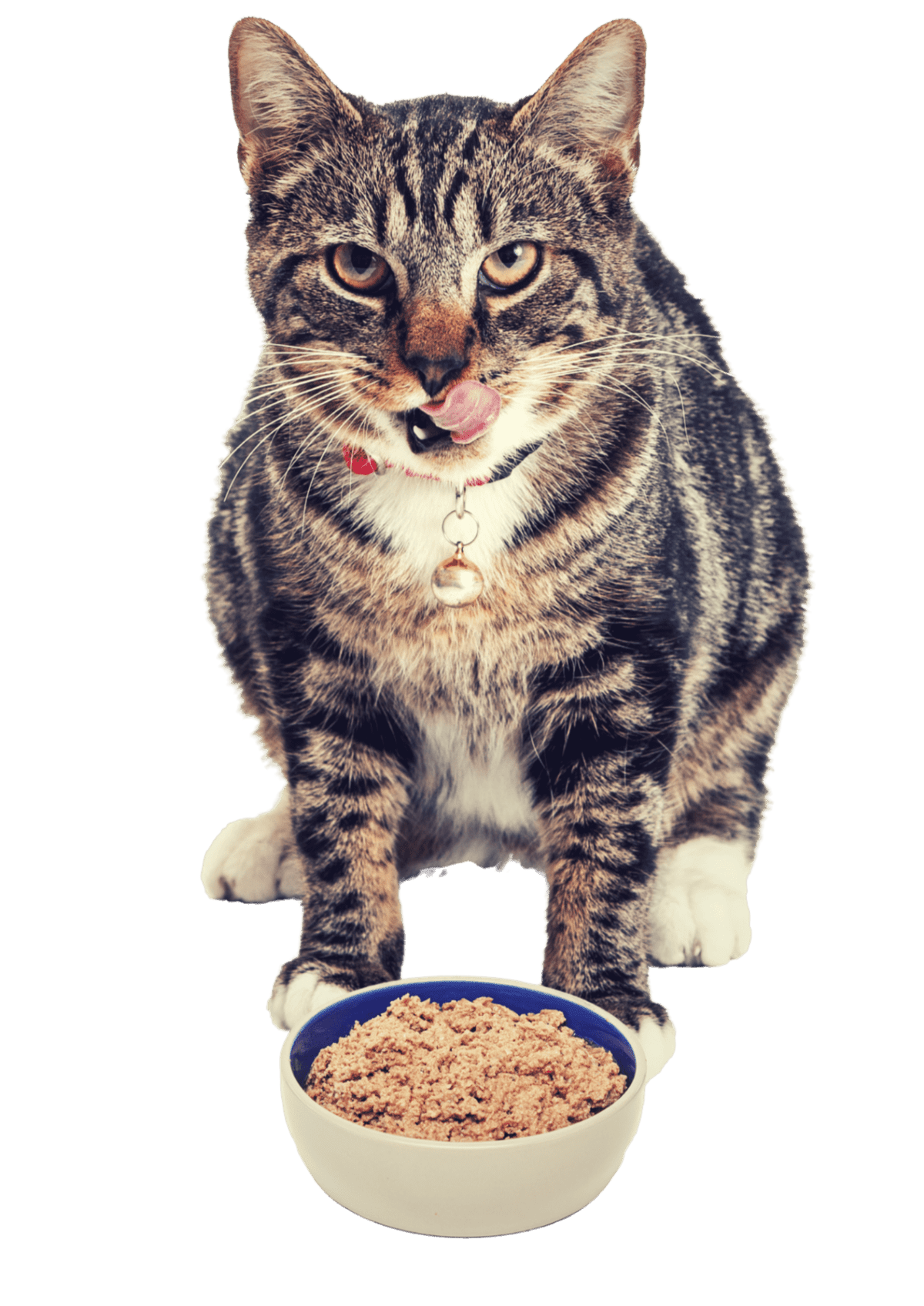What human food can cats eat to make a nutritious and delightful feed for them?
Human food is becoming extremely popular these days.
Pet parents like you treat their cats like their own children hence want to feed them high quality food.
As a cat lover, I have researched deeply to bring the best 15 human foods for your pet cat.
In most cases, you won't have to explore anywhere other than your kitchen for foods for your pet friend.
And once you've determined human meals your feline companion will enjoy, you can easily make some wonderful homemade treats for your cat.
Cats are inquisitive about everything that humans do, whether it's food or anything else.
Cats are known to follow their owners everywhere they go and constantly monitor what their owners are doing.
Your kitty’s diet should be rich in nutrients and lean in protein that will help to keep their bones and muscles in good condition.
In fact, many cat owners like you share their delicious meals with their feline companions.
However, there are only a few human foods that can be given to your cat on a regular basis.
Keep reading to find out human meals that are ideal for your cat and how you can make the best homemade cat food.
Let's get started.
1. Fish
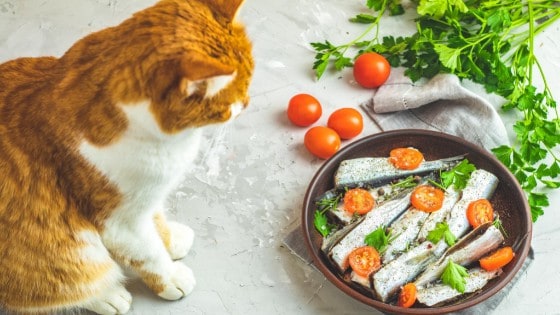
Fish is a superior form of meal that you can feed your pet cat.
Feeding fish does not mean that you would let your cat feed directly from a pond or an aquarium.
Cooked oily fish, like tuna or mackerel, can be given to them as a treat because it is beneficial to their eyesight, joints, and brain.
Alternatively, you can give fish oil to your cat that can help to avoid dry skin in the winter and maintain a healthy coat throughout the year.
Salmon which is a high-quality source of nutrition along with amino and omega-3 fatty acids, may prove to be a delightful and appetising food for your cat.
Raw fish may not be easily digestible hence it is advised to be cooked properly.
2. Spinach
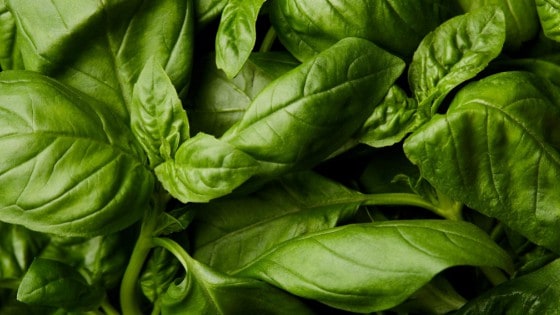
Spinach contains soluble fiber, amino acids, and minerals with a range of vitamins including vitamin A, vitamin C, and vitamin K.
It also has iron, potassium, and calcium that can be used as a healthy homemade treat for your cat.
Spinach has countless health benefits, hence it is included in a number of cat food formulas.
However, you may keep in mind that if your cat had experienced bladder stone or any kidney disease in the past, you may refrain from feeding them spinach in the future.
Spinach is also available as canned food as it is considered a natural diet for adult cats.
As a core ingredient in commercial cat food diet, spinach is gaining popularity.
Spinach has been highly recommended for pet cats as it suffice most of their nutritional needs.
3. Fish Oils
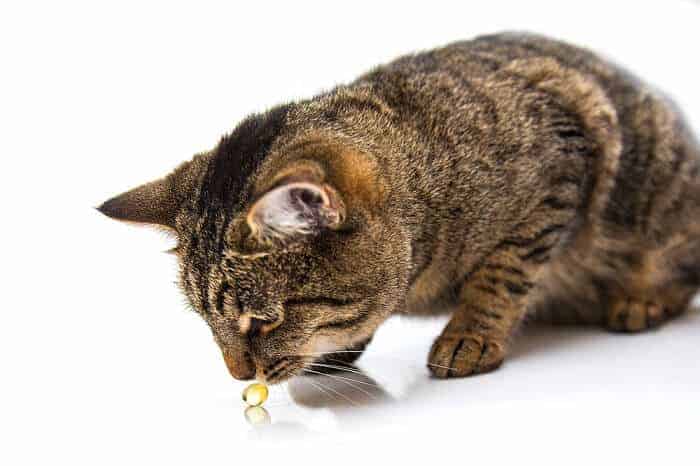
As a form of vital ingredient, start giving fish oil to your cat as soon as possible.
It comes in the form of cat food supplements and offers a plethora of nutritional benefits.
Fish oil can be fed to both pet cats and dogs.
Fish oil supplements for cats, which contain omega 3 fatty acids, can effectively deter skin allergies and may keep your cat's coat glossy forever.
Omega 3 fatty acids are found in fish oil, that comes in a multitude of types, notably salmon liver oil and cod liver oil.
Moreover, the natural fatty acids included in supplements derived from fish caught in the wild, such as cod oil etc serves to improve the digestive tracts of both dogs and cats.
4. Eggs
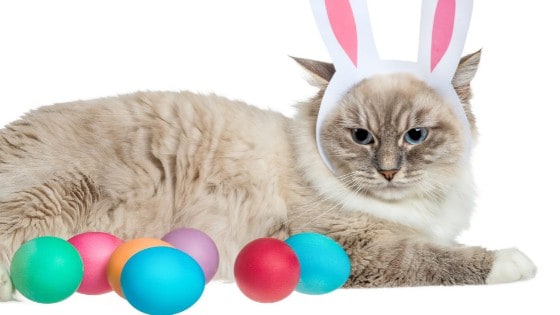
Eggs are a great source of essential nutrients having high amount of protein and vitamins that are completely safe for your pet cat's consumption.
However, make sure the eggs you feed your cat are completely cooked to prevent the risk of stomach illness.
There are a variety of canned cat foods that contains eggs as well as chicken.
Consumption of raw eggs are not recommended for cats especially the raw white portion which is dangerous for cats.
In case eggs are not boiled completely, they become a breeding habitat for bacteria, including Salmonella that may upset their stomach.
The main protein source, avidin, is capable of binding to the critical vitamin biotin (also known as vitamin B7) and preventing cats from taking it in.
Cats are unable to absorb biotin as a result of this condition.
This could eventually lead to vitamin scarcity if things continue as they are.
On the other hand, use of cooked eggs completely removes all of these dangers for your cat.
5. Cantaloupe
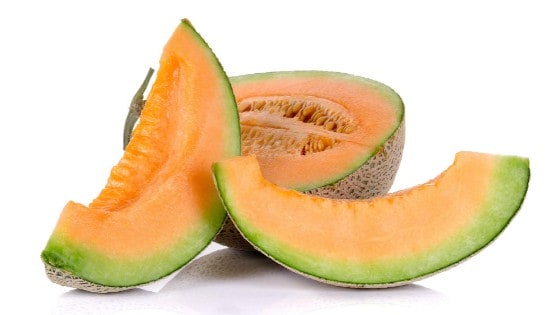
Researchers believe that cantaloupe is one of the safest fruits for your cat.
It has a high concentration of antioxidants as well as beta-carotene that helps in maintaining the overall health of your cat.
It also helps in healthy teeth, skin, as well as clear eye vision.
Cats are particularly fond of eating little portions of cantaloupe.
In addition, it contains high amount of proteins, soluble fiber, and vitamins that acts as an important antioxidant.
6. Chicken
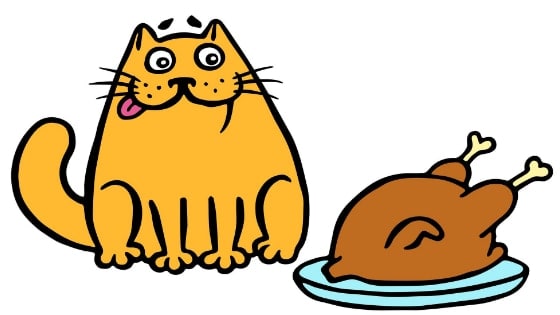
You know that cats are carnivores and their diet mainly comprise of meat as contrast to dogs, who are omnivores and can eat a range of meals.
As a result, the body systems of cats aren't as capable of digesting fibrous food, and they don't have access to the same range of human meals as dogs.
Cats, on the other hand, are completely content with meat, including chicken.
But remember, you should not feed raw meat or chicken to your cat.
Chicken can provide enormous protein to your cat, however ensure that it has been thoroughly cooked and the skin has been removed as it may contain fat.
Chicken is also available in the market as a commercial cat food.
You may get it in a variety of ways like processed or canned food.
It is also available as raw chicken or dry food at your local pet store.
7. Bananas
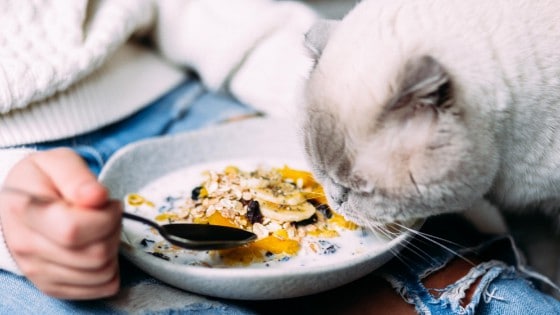
Bananas are a good source of protein, potassium, minerals, as well as soluble fiber for pet cats thereby making it a good nutritious treat.
Experts are of the opinion that bananas make a very healthy food for your pet cat.
However, along with other human foods, it should not make for more than 20% of your pet cat's daily food intake.
Although bananas are not dangerous for your cat, they are not that easy for cats to digest.
On the other side, the fiber, potassium, magnesium, vitamin B6, vitamin C, and folate found in bananas may be beneficial to your cat's health provided they are not given in large quantities.
The nutritional value of bananas for humans is debatable, but the same cannot be said for cats.
This is especially true given that bananas' high sugar content is not required in a cat's diet.
8. Oatmeal
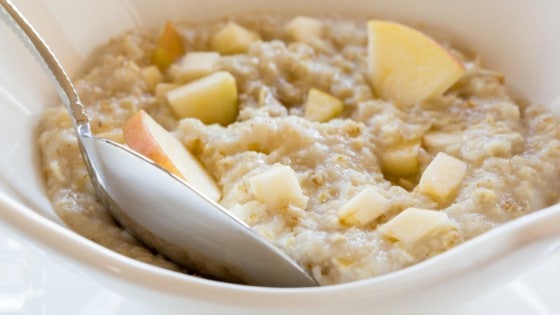
Oatmeal can provide an alternate source of energy for your cat along with essential nutrients and vitamins.
Oatmeal can also be used along with other commercial food, such as dry cat food etc, to provide additional nutrition.
If your cat does not enjoy oatmeal, you can try introducing it in small portions on a daily basis in his/her diet.
Both pet cats and dogs can consume oats as long as they are are wet or they are properly mixed with water instead of milk.
This is because many cats and dogs are lactose intolerant and should avoid dairy products altogether.
Pre-soaked overnight in water and then boiled before being blended with a wet meal or given as a snack are the finest methods of preparing oats.
Instead of eating it every day, it's great as an occasional treat.
9. Pumpkin
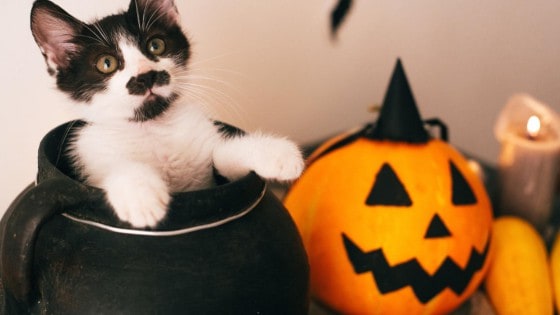
Is it safe for cats to eat pumpkins?
Researchers have discovered that pumpkin is not only low in calories and fatty acids and high in soluble fiber, but it also has the potential to be effective in treating cats who have abnormal faeces.
As pumpkin is safe and nutritious, you can use it to make cat treats that are both tasty and nutritious.
Pumpkin can also be used as cat food supplement as it is easily available in the market.
Pumpkin is also a good source of vitamin A and C.
Pet food supplements for dogs and cats come in small pouches that contain a puree that helps in healthy digestive movement and enhance stool quality.
10. Cheese
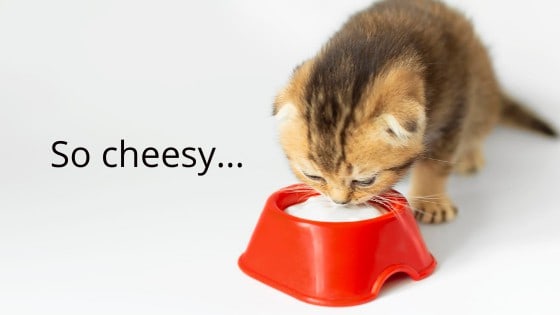
If your feline companion loves to eat cheese, provide her with a hard cheese such as cheddar as a treat to encourage her to continue.
As they are high in nutrients, calcium, potassium, and protein, it is simple to bake these into a nice food treat for your cat.
You can also feed raw cheese to your cat in small quantities as they are readily available as commercial food.
Despite the fact that cheese is a good source of nutrients and protein, however it may not be conducive to a cat's sensitive digestive tract due to high fatty acid composition of the cheese.
The fact that cats have a difficult time consuming meat and dairy explains this case in this particular instance.
Although cats have digestive tracts that produce the lactase enzyme, which is necessary for breaking down lactose in dairy products, humans and other omnivores do not generally manufacture this enzyme in their bodies.
As a result of this, it is substantially more difficult for them to digest dairy products.
According to research, the vast majority of cats are lactose intolerant, and they may even suffer from severe vomiting and diarrhoea if they consume dairy products on a regular basis.
11. Bread
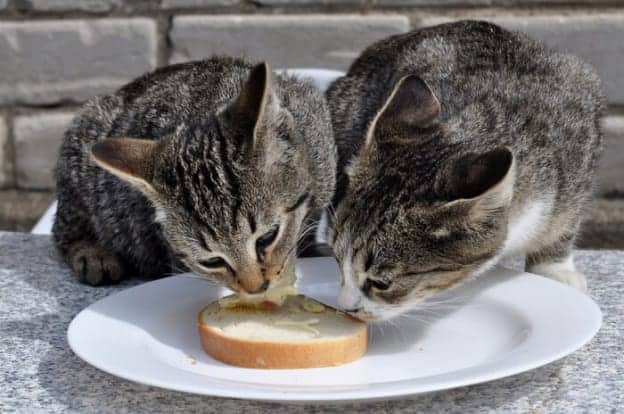
First and foremost, every pet cat breed is unique from the others.
While one can tolerate a tiny bit of bread without experiencing stomach pain or discomfort in the digestive system, others may experience severe issues.
The symptoms can include kidney problems, gastrointestinal tract distress, food poisoning, diarrhoea, and constipation.
If your feline friend experiences digestive tract issues after consuming bread, you should immediately cut it off from their diet.
Some cats enjoy snacking on bread, which is an excellent source of protein and soluble fiber.
Moreover, if your feline companion suffers from a medical problem such as obesity, diabetes, stomach issues, or heart disease, you should avoid giving them bread.
Also, no special seasoning should be given to pet cats when preparing the loaf of bread.
These substances include but are not limited to dark chocolate, white chocolate, cream, onion, and chives, all of which are harmful to pet cats.
Avoid nut bread if you can.
Nuts such as macadamia nuts are considered poisonous for cats.
12. Apples
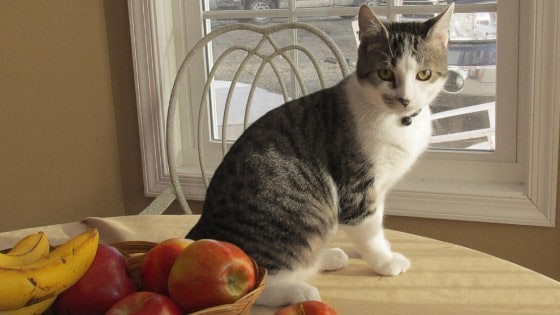
Experts believe that apples are a safe meal, however, there are a few things to bear in mind while feeding your cat with apples.
Apples are generally considered to be safe for cats who are in good health.
If your cat suffers from a medical problem (such as diabetes, kidney failure, or liver failure), this general guideline may not apply to him/her.
Every cat is different and can have a wide range of tolerance levels when it comes to different foods.
Because some cats may digest a certain food item with no trouble whereas another cat may consume the same thing and develop vomiting, diarrhoea, or other unpleasant indications.
13. Blueberries
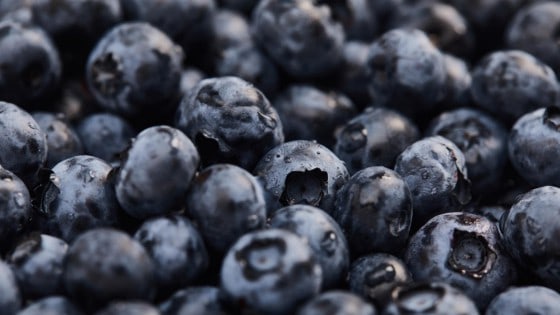
Frozen blueberries, which are a good source of proteins, vitamins, and nutrients, can be added to your cat's diet.
They are so good that some pet cats even enjoy munching them.
As previously stated, you should avoid multiple food treats for your cat, even if they are nutritious.
Try to keep incentives to not more than 20 calories per day.
That's about two tablespoons of fried fish, poultry, or blueberries (although you probably wouldn't like to give them all berries).
Combining and matching human food items with your cat food is a straightforward way of achieving the desired nutrition.
14. Peas
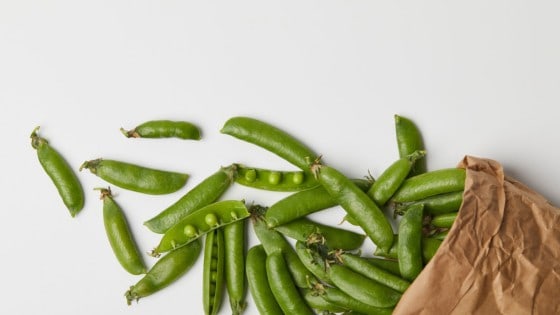
The legume pea, which is high in fiber, vitamins, and protein, is yet another human meal that is beneficial for your cats.
It is normal to find them in products like commercial cat foods that are easily available in the market.
It is beneficial for cats to consume peas since they are high in nutrients and vitamins.
Peas also include dietary fiber as well as minerals.
These vitamins and minerals are beneficial to a cat's health and have a positive influence on your feline's gastrointestinal tract.
15. Turkey
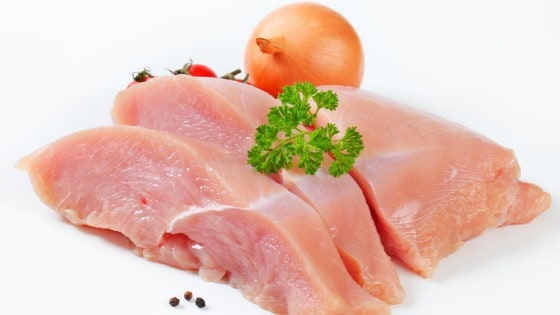
Cooked turkey meat, which has low protein, is another healthy and cat-safe food.
Turkey is a good source of calcium as well.
When you introduce new foods like Turkey meat to your feline friend, it is possible that initially he/she may experience some gastrointestinal tract issues.
But there is nothing to be worried about.
It's possible that their bodies are not acclimated to digesting the food they've never had before, and as a result, they may become a bit choosy.
Provide them with a range of options so they may discover what they enjoy, ensuring to keep everything in proportion.
As a final precaution, ensure that your cat receives adequate daily nourishment by feeding them cat food along with human food.
Conclusion
Giving your cat a few human food items is fine, but you must make certain that the food you provide is nutritious and free of any kind of contaminants.
As a caring pet owner, before you give your cat any human food, you should consult with your veterinarian on about the best food to feed your cat.
Unless otherwise specified the food indicated above can only be supplied as a small treat for your cat.

